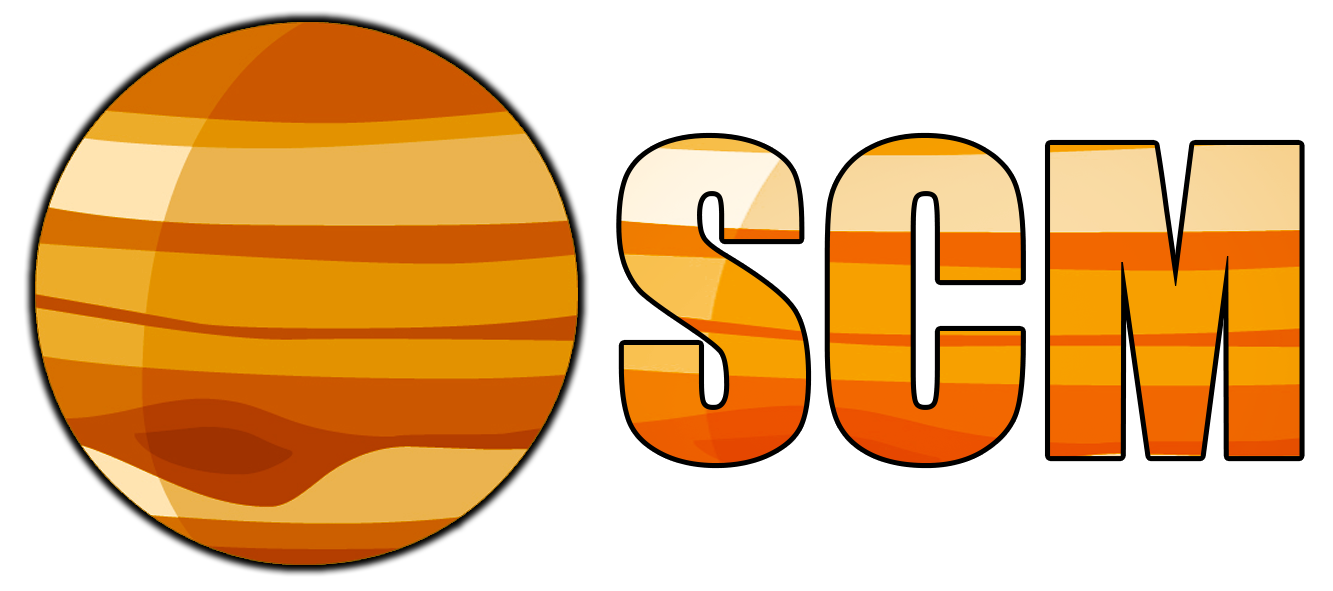Reverse logistics is the process of managing the flow of goods from the point of consumption back to the point of origin. This includes the handling of returns, repairs, refurbishment, and disposition of products. Reverse logistics is becoming increasingly important in supply chain management due to several factors. First, the rise of e-commerce has led to a significant increase in returns, which can be costly and complex to manage. Second, consumers are becoming more environmentally conscious and expect companies to have sustainable practices, including the recycling and repurposing of products. Third, reverse logistics can help companies recover value from returned products, either by refurbishing and reselling them or by recycling their components. Fourth, reverse logistics can help companies improve customer satisfaction by providing a seamless and efficient returns process. Finally, reverse logistics can help companies reduce waste and improve their bottom line by optimizing their inventory management and reducing their environmental impact. By selecting the right partner, companies can streamline their reverse logistics operations, generate higher ROI, and increase efficiency. Managing the relationship with a 3PL partner is critical to ensuring that the partnership is successful. Companies should establish clear communication protocols and escalation procedures, define key performance metrics and reporting requirements, implement continuous improvement processes, and regularly review and renew contracts to ensure that they remain relevant and aligned with their needs and requirements.


Certifications play a crucial role in demonstrating expertise in reverse logistics. Certifications provide a way for companies to ensure that their partners have the necessary knowledge, skills, and experience to manage the entire reverse logistics process efficiently and effectively. Some of the most widely accepted certifications for technology reverse logistics include:
– DIN 66399-9:
This standard, which is valid and recognized in Germany, specifies how data-containing material must be destroyed. It also classifies data according to its importance, which determines the extent of destruction required¹.
– ElektroG:
The ElektroG transposes the European WEEE Directive 2012/19/EU into German law. It regulates the placing on the market, taking back, and environmentally-sound disposal of electrical and electronic equipment¹.
– eStewards:
Owned and administered by the Basel Action Network, eStewards sets a standard for the ethical and responsible reuse, recycling, and disposition of electronics. This certification is a comprehensive set of performance requirements for the ITAD industry, ensuring the highest social and environmental protection.
– ISOs:
The International Organization for Standardizations (ISO) is an independent organization that develops certifications to deliver environmental, social, and governance solutions on a global scale.
By obtaining these certifications, companies can ensure that their partners have the necessary expertise and experience to manage the entire reverse logistics process efficiently and effectively.
CIRS Certification (Certified in Reverse Logistics):
The Certified in Reverse Logistics (CIRS) program is designed to provide professionals with the knowledge and skills needed to manage the reverse logistics process effectively. Here is an overview of the CIRS program:
Overview of the CIRS program from Reverse Logistics Association:
The CIRS program is offered by the Reverse Logistics Association (RLA), a global organization that provides support and resources for professionals in the reverse logistics industry. The program is designed to help professionals develop the skills and competencies needed to manage the entire reverse logistics process efficiently and effectively.
Eligibility and requirements to obtain the CIRS designation for Reverse Logistics
To obtain the CIRS designation, candidates must meet certain eligibility requirements, such as having a minimum of two years of experience in reverse logistics or a related field. Candidates must also complete the CIRS curriculum, which includes courses on topics such as reverse logistics strategy, returns management, and sustainability. Finally, candidates must pass a comprehensive exam to demonstrate their knowledge and skills.
Skills and competencies covered by the CIRS curriculum:
The CIRS curriculum covers a wide range of skills and competencies related to reverse logistics, including:
– Understanding the reverse logistics process
– Developing a reverse logistics strategy
– Managing returns and repairs
– Refurbishing and remanufacturing products
– Disposing of end-of-life inventory
– Implementing sustainability programs
– Managing customer relationships
– Using technology systems to manage reverse logistics
– Benefits for professionals and hiring managers:
The CIRS program offers several benefits for professionals and hiring managers. For professionals, the program provides an opportunity to develop new skills and competencies, enhance their career prospects, and increase their earning potential. For hiring managers, the program provides a way to identify and recruit qualified candidates who have the knowledge and skills needed to manage the reverse logistics process effectively. By obtaining the CIRS designation, professionals can demonstrate their expertise and commitment to the reverse logistics industry.
CRSP Certification in Reverse Logistics
I apologize for the confusion. The Certified Reverse Supply Chain Professional (CRSP) certification is actually the Canadian Registered Safety Professional certification, which is a certification for occupational health and safety professionals in Canada. The certification demonstrates that certified individuals have met minimum formal education and experience requirements and acquired a minimum level of knowledge and expertise in this field by passing the CRSP Examination. The certification is considered a benchmark in the OHS profession and the certification of choice for OHS professionals. The certification is accredited to ISO 17024 and certified to ISO 9001, which ensures that it is a quality certification. The eligibility criteria for the CRSP certification include a combination of education, professional development, and experience. Depending on the type of education obtained, there may be an exemption from the professional development criteria. The CRSP curriculum covers a wide range of skills and competencies related to occupational health and safety, including understanding the OHS profession, developing an OHS program, managing OHS risks, and implementing OHS programs. By obtaining the CRSP certification, professionals can demonstrate their expertise and commitment to the OHS industry and increase their employability and earning potential.
ISO Certifications:
ISO (International Organization for Standardization) is an independent, non-governmental international organization that develops and publishes standards for various industries. Two of the most relevant ISO standards for reverse logistics are ISO 14001 and ISO 9001.
– ISO 14001:
This standard specifies the requirements for an environmental management system (EMS) that an organization can use to enhance its environmental performance. The standard provides a framework for organizations to manage their environmental responsibilities in a systematic and integrated manner. By implementing an EMS based on ISO 14001, companies can reduce their environmental impact, improve their sustainability, and comply with environmental regulations.
– ISO 9001:
This standard specifies the requirements for a quality management system (QMS) that an organization can use to enhance customer satisfaction by meeting customer requirements. The standard provides a framework for organizations to manage their quality responsibilities in a systematic and integrated manner. By implementing a QMS based on ISO 9001, companies can improve their product and service quality, increase customer satisfaction, and comply with quality regulations.
These environmental and quality certifications complement reverse logistics by providing a framework for managing the entire reverse logistics process efficiently and effectively. By implementing an EMS based on ISO 14001, companies can manage their environmental responsibilities related to reverse logistics, such as recycling, repurposing, and disposal of end-of-life products. By implementing a QMS based on ISO 9001, companies can manage their quality responsibilities related to reverse logistics, such as returns management, repairs, and refurbishment.
Individuals and companies seeking ISO accreditation can follow several pathways. For individuals, there are training courses and certification programs available that provide the necessary knowledge and skills to implement and manage ISO standards. For companies, there are consulting firms and certification bodies that can provide guidance and support for implementing and certifying ISO standards. By obtaining ISO accreditation, individuals and companies can demonstrate their commitment to quality and environmental responsibility and increase their competitiveness in the marketplace.
Green Supply Chain Certifications in Reverse Logistics
There are several green supply chain certifications available that address sustainability in reverse/closed-loop logistics. Here is some information on these certifications:
– Certified in Sustainable Supply Chain Management (CSSCM):
This certification is offered by the Chartered Institute of Procurement and Supply (CIPS) and is designed to help professionals develop the skills and knowledge needed to manage sustainable supply chains. The certification covers topics such as sustainable procurement, circular economy, and closed-loop supply chains. To earn the CSSCM certification, candidates must complete a training program and pass an exam.
– Green Supply Chain Professional Certification (GSCP):
This certification is offered by the Environmental Association for Universities and Colleges (EAUC) and is designed to provide professionals with the knowledge and skills needed to manage sustainable supply chains. The certification covers topics such as green procurement, carbon management, and sustainable transportation. To earn the GSCP certification, candidates must complete a training program and pass an exam.
Both of these certifications are valuable for advancing one’s career in reverse logistics roles, as they demonstrate a commitment to sustainability and environmental responsibility. By obtaining these certifications, professionals can develop new skills and competencies, enhance their career prospects, and increase their earning potential.
Continuing Education and Recertification:
Continuing education and recertification are important for professionals in the reverse logistics domain to stay up-to-date with the latest trends and topics. Here are some resources for maintaining certification credentials over time:
– Certification bodies:
Many certification bodies offer continuing education programs and recertification requirements to ensure that certified professionals maintain their knowledge and skills. For example, the Certified in Reverse Logistics (CIRS) program requires certified individuals to complete 20 hours of continuing education every two years to maintain their certification. Similarly, the Certified in Sustainable Supply Chain Management (CSSCM) program requires certified individuals to complete 20 hours of continuing education every three years to maintain their certification.
– Industry associations:
Industry associations such as the Reverse Logistics Association (RLA) and the Council of Supply Chain Management Professionals (CSCMP) offer a range of resources for professionals in the reverse logistics domain. These resources include webinars, conferences, publications, and networking opportunities. By participating in these activities, professionals can stay up-to-date with the latest trends and topics in the industry and expand their professional network.
– Academic institutions:
Academic institutions such as universities and colleges offer a range of courses and programs related to reverse logistics and supply chain management. These courses and programs can provide professionals with the knowledge and skills needed to stay competitive in the industry. Additionally, many academic institutions offer online courses and programs, which provide flexibility for working professionals.
Some of the upcoming trends and topics in the reverse logistics domain include:
– Circular economy: The circular economy is an economic model that aims to eliminate waste and promote sustainability by keeping resources in use for as long as possible. In the reverse logistics domain, the circular economy can be applied to the refurbishment, remanufacturing, and recycling of products.
– Automation and robotics: Automation and robotics are becoming increasingly important in the reverse logistics domain, as they can help streamline operations, reduce costs, and improve efficiency. For example, automated sorting systems can help sort returned products more quickly and accurately, while robotic refurbishment systems can help refurbish products more efficiently.
– Sustainability: Sustainability is a growing concern in the reverse logistics domain, as consumers are becoming more environmentally conscious and expect companies to have sustainable practices. Reverse logistics can help companies reduce waste, improve efficiency, and promote sustainability by refurbishing, remanufacturing, and recycling products.
By staying up-to-date with these trends and topics, professionals in the reverse logistics domain can enhance their knowledge and skills and stay competitive in the industry.
These certifications demonstrate expertise to employers and clients in the growing field of reverse logistics. By obtaining these certifications, professionals can demonstrate their knowledge and skills in the field and increase their employability and earning potential. The CRSP certification demonstrates that certified individuals have met minimum formal education and experience requirements and acquired a minimum level of knowledge and expertise in occupational health and safety by passing the CRSP Examination. The CSSCM certification provides professionals with the knowledge and skills needed to manage sustainable supply chains and optimize returns, waste removal, and cost efficiency. The GSCP certification provides graduates with a comprehensive knowledge of the sustainability areas confronting supply chain and operations professionals. These certifications are valuable for advancing one’s career in reverse logistics roles, as they demonstrate a commitment to sustainability, environmental responsibility, and quality. Continuing education and recertification are also important for professionals in the reverse logistics domain to stay up-to-date with the latest trends and topics. Many certification bodies offer continuing education programs and recertification requirements to ensure that certified professionals maintain their knowledge and skills. By staying up-to-date with these trends and topics, professionals in the reverse logistics domain can enhance their knowledge and skills and stay competitive in the industry.
Key Takeaways for non-traditional career paths in reverse logistics
1. Non-traditional career paths in reverse logistics management offer unique opportunities for professionals seeking diverse and dynamic roles.
2. Consider exploring roles such as reverse logistics analyst, sustainability manager, e-commerce returns specialist, or circular economy consultant.
3. Acquire specialized knowledge and skills in areas like supply chain optimization, sustainability practices, data analysis, and customer experience.
4. Embrace continuous learning and stay updated on industry trends, technological advancements, and best practices in reverse logistics.
5. Network with professionals in the field, join industry associations, and attend conferences or workshops to expand your connections and knowledge.
6. Highlight transferable skills such as problem-solving, adaptability, project management, and communication to enhance your prospects in non-traditional roles.
7. Seek out internships, apprenticeships, or mentorship programs to gain practical experience and make a smooth transition into non-traditional career paths.
8. Be open to exploring emerging sectors like renewable energy, sustainable packaging, or remanufacturing, which offer exciting opportunities in reverse logistics management.
Check out our previous post by clicking here


